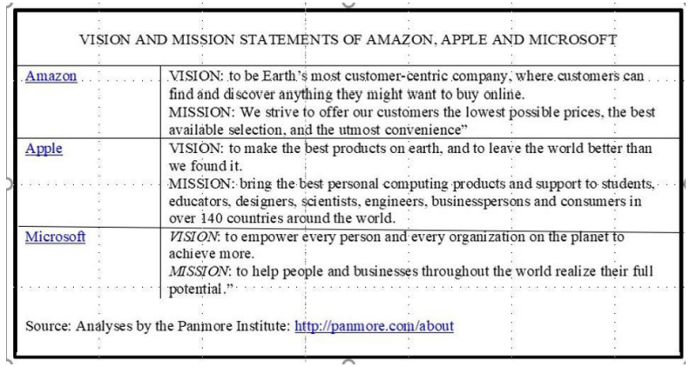The idea that serving customers might comprise an inspiring life-purpose strikes some observers as absurd. As one reader tweeted in response to one of my recent articles, “In my experience, people need to believe that a company exists for some purpose beyond the customer.”
More seriously, few of the many recent books and articles about corporate purpose cite creating customer value as a worthwhile or moral goal. This seems odd when, from 1954 onward, management guru Peter Drucker kept citing “creating customers” as the only valid purpose of a firm, and today, creating customer value has helped create the most valuable firms on the planet. Moreover, the seeming disdain for customer value as a corporate goal seems to be leading some firms to take the wrong turn of declaring the need for some preachy social purpose on top of the firm’s main business as a way of signalling virtue.
What is driving the lack of respect for customer value as a worthwhile goal is a failure to recognize that what we are talking about now in terms of customer value is fundamentally different from those 20th century firms that chanted “The customer is number one,” but did little to implement it.
If firms want to create a genuinely customer-driven workplace, they must take at least six necessary steps. The result is a life-inspiring firm—an organization that is right for our times.
1. From A Self-Interested, To An Other-Directed Mission
hen firms (or persons) assert a purpose, they have to choose between aspiring to help others, and seeking their own self-interest. For the last half-century, most large businesses have explicitly pursued self-interest for themselves and their executives: maximizing shareholder value (MSV)—a.k.a. profits.
This goal—the epitome of the self-interested purpose—is at odds with the religious prescription to “love your neighbour as yourself’, as well as most systems of morality, and all truly customer-driven companies. Ironically, quite apart from MSV’s questionable ethical foundation, it has proved to be self-defeating in practice. It undermines long-term shareholder value—the very thing MSV is meant to generate.
The largest and most successful firms in the world today—Amazon, Apple, and Microsoft—are explicitly obsessed with delivering value to customers, as shown in Figure 1.

2. From Systemic Truth-Fudging To Uncompromising
Honesty It’s easy to become cynical about business, when we hear outrageous claims made for their products, and the stretching of the truth of how socially responsive their regular business is. Even if we dismiss these claims as harmless PR or obvious nonsense, the incessant truth-fudging blurs the distinction in our minds between the true and the spurious.
When we are presented with self-adulatory bombast, it undermines trust in everything the firm says. We cannot create life-inspiring workplaces when such dishonesty is tolerated, encouraged, even mandated by the management. The shift to honesty isn’t easy. In many corporations, living and speaking truthfully is a radical act. Not to go along can have significant career consequences. But there is no real choice, if you want a life-inspiring workplace. Dishonesty has got to stop.
3. From Responding To Customer Wants vs. Meeting Customer Needs Many
firms survey what customers want and try to deliver it. That usually doesn’t work, because customers can tell us their problems, but don’t know how to solve them.
- Thus, in the 2000s, customers said they wanted a better physical keyboard on their mobile phone: Apple realized that what they needed was a touchscreen that replaced the physical keyboard.
- In the 2010s, Spotify’s customers said they wanted a better search tool so that they could find new music they would love: Spotify solved the problem differently by meeting their need directly: “Discover Weekly,” a device that delivers a weekly playlist of music each week based on the customers continuously evolving preferences.
4. From ‘More Of The Same’ to Co-creating More Customer Value Many
Firms try to strike a balance between exploitation and exploration. The firm is “built to minimize risk and keep people in their boxes and silos,” as business school professor John Kotter writes. People “are working with a system that is designed to get today’s job done—a system that asks most people, usually benignly, to be quiet, take orders, and do their jobs in a repetitive way.” Such a workplace can never be life-inspiring. The answer though is not to add an extraneous purpose on top. The firm has to make co-creation of customer value the central thrust of everything the company does.
5. From Market Research To Empathy For Individuals Capitalism
Has a well-justified reputation for heartlessness, Firms study how to move customers to the “buyer” column of a firm spreadsheet. Yet increasingly we are seeing major corporations like Microsoft base its whole modus operandi on the embrace of empathy.
6. From Stimulating The Brain To Activating The Heart Managing
a big firm today is driven by figures and statistics, for which high-powered brainpower is the sine qua non. Yet such dry analyses are missing the dimension that is necessary to excite customers. Firm must activate their own hearts if they wish to reach the hearts of their staff and their customers and create life-inspiring firms. The brain alone won’t get the job done.
Why This New Kind Of Firm Has Arrived
What we are seeing now is a new kind of organization that is right for our times. These firms are unlike the large firms that we saw in the 20th century. The message is clear both for those leading firms, and for those working in one. They need to recognize that their firm will never be inspiring unless they take those six steps.
The choices are simple: become a customer-driven firm or go somewhere to work that is.
Copyright Stephen Denning 2022: This article was published first in Forbes.com and are re-published here, with permission, all rights reserved.